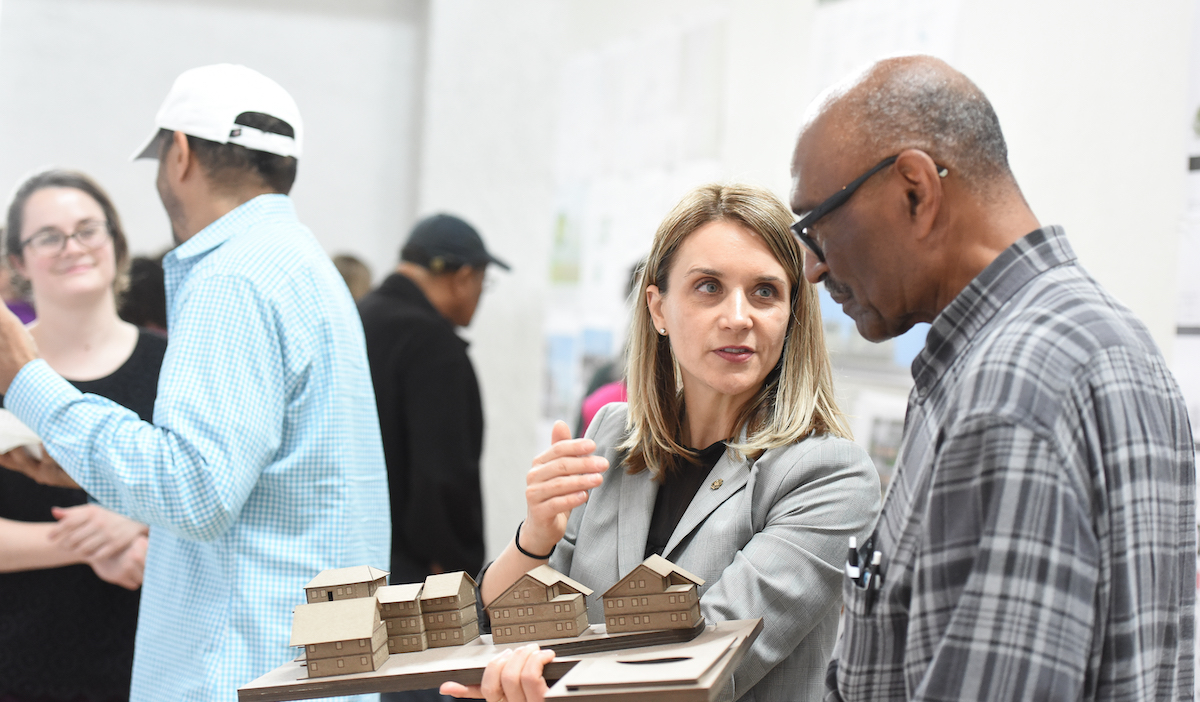

Catholic University is one of 12 institutions of higher education worldwide, and the only Catholic university, to have a program receive the U.S. Department of Energy’s first-ever Zero Energy Design Designation (ZEDD). The designation recognizes leading sustainable building academic programs.
The University’s School of Architecture and Planning’s Master of Science in Net Zero Design/Master of Architecture Joint Degree was honored. A net zero energy building uses the same amount of energy as is produced onsite using renewable resources, which is why they are often called “green buildings.”
Architecture Dean Mark Ferguson said the recognition is a reflection of the commitment of the faculty, especially Assistant Professor and Head of Sustainability Outreach Patricia Andrasik, to incorporating environmental stewardship into building design for a more sustainable future.
“The school is very proud of the work Professor Patricia Andrasik and her colleagues are doing to honor our commitment to our students. They are the future stewards of our buildings, towns, and cities,” said Ferguson. “State-of-the-art knowledge in high-efficiency, low-carbon building design is just as important as the knowledge needed to make buildings safe, comfortable, accessible, and uplifting.”
The full-time or part-time accelerated dual master’s program is designed with working professionals in mind, with the majority of classes held after 6:30 p.m.
To qualify for the DOE designation, program graduates must be required to complete a ZEDD-approved building science education curriculum and work on a real-world zero energy project that would qualify for a DOE Zero Energy Ready Home certificate for meeting energy efficiency and environmental standards.
“Forward-looking college and university programs we honored today are paving the way for students to lead our net-zero greenhouse gas emissions future,” said Carolyn Snyder, DOE deputy assistant secretary for energy efficiency, in a press release. “Graduates of these programs will join the front lines of our fight against the climate crisis by designing sustainable buildings that bring the benefits of our clean energy future to all.”
This is the latest recognition of the University's longstanding commitment to sustainability, which includes being ranked as one of the best green campuses in the nation. The University now offers more than 150 courses related to sustainability across multiple majors, minors, and fields of graduate study. The University is one of the first to sign onto the Vatican's Laudato Si Action platform for sustainability and is a member of the Better Buildings Alliance, a DOE program promoting energy efficiency innovation.